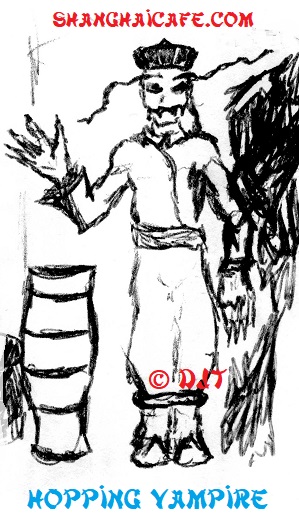Dangerous Ghosts of Chinese Folklore
|
"Swords" are made from coins strung together, and they traditionally protected babies from thou-tzu-kuei, which are embittered ghosts of childless women. The smoke from burning slippers is also said to have provided protection against thou-tzu-kuei. Victims of drowning were also once believed to become embittered ghosts (kuei) until another unfortunate person drowned at the same place. Kuei were feared because they might try to free themselves by deliberately drowning someone. Other embittered and sometimes malevolent kuei were the wandering ghosts of suicides. They were doomed to walk the Earth until at least the designated time of their natural death, as recorded by the deity Shou-lao, had been reached. The souls of people eaten by tigers were said to be enslaved by the big cats until until their kuei (malevolent spirits) had lured someone else to a similar doom. Other feared spirits are hungry ghosts who have not been fed by their famlilies during Ghost Month. They can become even more embittered, even if food IS eventually left for them, as their prolonged fasts make their necks and throats long and narrow, making it difficult to swallow. Hopping Ghosts: Chinese Vampires
Corpses traditionally have their legs bound together. If such a corpse were not buried quickly enough, it could reanimate as a jiang shi, (aka jiangshi, chiang-shih) a "hopping ghost". Such vampires are blind but dangerous and vampiric. Their eyebrows are very long and prehensile, so each jiang shi mitigates its blindness by feeling around with them. Other powers of the hopping ghosts include flight, powerful breath with which they can repel vampire hunters, and the ability to change their appearance by shapeshifting. Hopping vampires appear in a number of Chinese movies, including the famous horror comedy Mr Vampire (1985). |
COPYRIGHT DJT © January 2020 : No material on this site may be copied by any means, without the author's permission.

